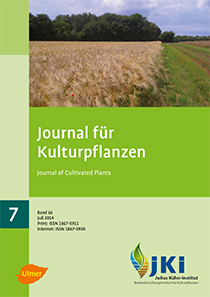Sustainable and resource efficient intensivation of crop production – Perspectives of agro-ecosystem researchPolicy paper of the DFG Senate Commission on Agroecosystem Research
Keywords:
Sustainable intensification, landscape, ecosystem services, resource efficiencyAbstract
With its policy paper the Senate Commission on Agro-ecosystem Research of the Deutsche Forschungsgemeinschaft (DFG) summarizes potential benefits of basic research for the sustainable intensification of crop production. Agro-ecosystems critically contribute to fulfilling the need for increasing food and fiber production, diminishing resource depletion as well as counteracting biodiversity loss and climate change. Yield demands that are needed to ensure the food supply predicted for the year 2050 can only be achieved by scientific progress that allows the intensive yet environmentally friendly production of plant biomass (Figure 1), (FAO, 2011; Dobermann und Nelson, 2013; Ray et al., 2013). Sustainable intensification requires a scientific realignment that allows for broadening the scope of agricultural research. The productivity of farming systems should be evaluated with regard to their efficiency (input-output relation). In addition, the spatial and temporal variability of these systems must be considered by addressing local conditions, the landscape context and climate change. With respect to ecosystem services, new production strategies must be developed that take all aspects of landscape and regional complexity as well as socio-economic conditions and agricultural policy into account.
Against this background, the Senate Commission on Agro-ecosystem Research proposes three priority areas of interdisciplinary research on resource efficient intensification of crop production:
(1) Exploiting the biological potential of the individual crop plants for an environmentally friendly intensification in an ecosystem approach
(2) Exploring sustainable intensification of crop production within a landscape context
(3) Taking full account of the economic, social and political dimensions of sustainable intensification of crop production
DOI: 10.5073/JfK.2014.07.01, https://doi.org/10.5073/JfK.2014.07.01
Downloads
Published
Issue
Section
License
The content of the journal is licensed under the Creative Commons Attribution 4.0 License. Any user is free to share and adapt (remix, transform, build upon) the content as long as the original publication is attributed (authors, title, year, journal, issue, pages).
The copyright of the published work remains with the authors. The authors grant the Journal of Cultivated Plants, the Julius Kühn-Institut and the OpenAgrar repository the non-exclusive right to distribute and exploit the work.







